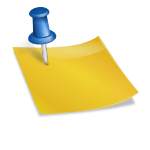Halfway through the last term of the year already! This week our youngest students consider museums as a place to learn about the past. Slightly older students are learning about the states and territories of Australia, as well as their representative birds and animals. Older students are in throes of their class election campaign, preparing for Voting Day next week! The Understanding Our World® use of continuous assessment allows teachers to easily stay on top of reporting requirements at this exceptionally busy time of year. In the 4th term in particular, students have already completed the bulk of their assessment tasks by this point, allowing the teacher to stay ahead with marking and preparing final reports.
Foundation/Prep/Kindy to Year 3
 Our youngest students in Foundaton/Prep/Kindy (Unit F.4) are looking at museums as places to learn about the past. This lesson introduces them to the concept of material culture, which gets expressed in the remaining weeks of the unit, when they prepare costumes and props for a class play. Students in integrated Foundation/Prep/Kindy and Year 1 classes (Unit F-1.4), as well as Year 1 (Unit 1.4), 2 (Unit 2.4) and 3 (Unit 3.4) classes, are looking at the states and territories of Australia. All the students learn to identify the states and territories of Australia and their location on a map of Australia. Students in Foundation/Kindy/Prep and Year 1 also consider areas of natural beauty and significance and in which states these are located. Students in Year 2 relate the representative bird, animal, fish and flower of each state with the natural areas of significance in that state; while students in Year 3 compare the states and territories, as well as areas of natural significance, with the places associated with the stories read in Week 1.
Our youngest students in Foundaton/Prep/Kindy (Unit F.4) are looking at museums as places to learn about the past. This lesson introduces them to the concept of material culture, which gets expressed in the remaining weeks of the unit, when they prepare costumes and props for a class play. Students in integrated Foundation/Prep/Kindy and Year 1 classes (Unit F-1.4), as well as Year 1 (Unit 1.4), 2 (Unit 2.4) and 3 (Unit 3.4) classes, are looking at the states and territories of Australia. All the students learn to identify the states and territories of Australia and their location on a map of Australia. Students in Foundation/Kindy/Prep and Year 1 also consider areas of natural beauty and significance and in which states these are located. Students in Year 2 relate the representative bird, animal, fish and flower of each state with the natural areas of significance in that state; while students in Year 3 compare the states and territories, as well as areas of natural significance, with the places associated with the stories read in Week 1.
 Years 3 to 6
Years 3 to 6
Students in Years 3 (Unit 3.8), 4 (Unit 4.4), 5 (Unit 5.5) and 6 (Unit 6.4) are proceeding with their class election campaigns. This week students complete their poster on an issue of relevance to their own school or lives – these may include environmental or political issues, depending on the year level and teacher choice concerning relevance for each class. Students should be encouraged to be creative and have fun with these activities. Students are also campaigning for the class election, for which voting will be held in the next lesson. An electoral roll and customised ballot papers are prepared for the class, using Australian Electoral Commission (AEC) resources. Explanations on accessing and using these resources can be found in the Running A Class Election resource. The electoral roll and ballot papers should be prepared well in advance of the lesson in which the class votes. In Queensland, these activities are of particular relevance as we head into a state election, and non-subscribers might be interested in our Class Election bundle.

 Years 3 to 6
Years 3 to 6
The kit was easy while still fun to build (except maybe for fitting the wires in). This was a fun…
Florence (15) and Keito (14), students at Hakusan International School